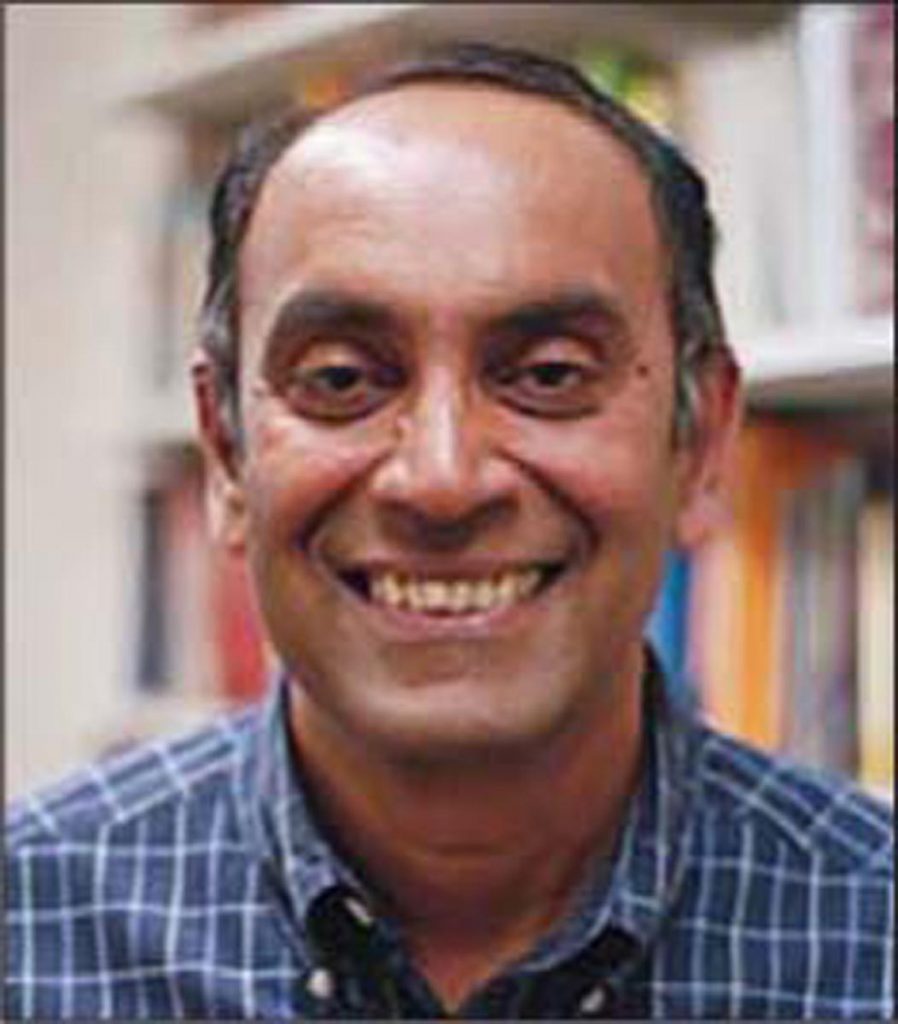The Future of Hinduism in America’s Evolving Religious Landscape
By Anant Rambachan

The recent pew research center findings on America’s religious landscape revealed that approximately 56 million Americans are religiously unaffiliated and belong to the category of religious “nones.” There are more “nones” than Catholics or mainline Protestants, and “nones” are second only to evangelical Protestants. “Nones” are also comparatively younger and more educated. In addition, the survey estimated that the number of Hindus in the US rose from 0.3% of the population in 2007 to 0.7 % in 2014. Of Hindus in the US, 77% are college graduates. Good questions have been raised by Murali Balaji about the challenges of gathering accurate numerical data for American Hindus. He suggests that the actual numbers may be higher (bit.ly/undercounted).
Although we might rejoice at our growing Hindu percentage of the adult population, the rise of “nones” is of particular interest to Hindus, who are not immune to larger US trends. When I was a child attending a Hindu elementary school in Trinidad, we recited a series of questions and answers about Hinduism from a small religious booklet. One of the questions was, “Why are you a Hindu?” The answer followed: “Because I was born a Hindu.” That may have been a good answer in its time, but it will not work for a new generation of Hindu Americans. Today, one’s affiliation with the Hindu tradition is not guaranteed by birth, nor is it limited by it.
The religious commitments of a new generation of Hindu Americans are challenged by a more common rejection of a religious worldview, or indifference to religion altogether. Many young Hindus will pursue the finest education, achieve great success in their careers, live productive and, for the most part, ethical lives, and do all of this without any significant commitment to Hinduism. The Hindu tradition will not necessarily inform their choice of profession, their spouse, leisure activities or political values. They may not see what religion might contribute to the pursuit of their primary life goals or even understand themselves as having religious needs.
As I see it, the choice placed before the new generation of Hindus in the US is not between the Hindu tradition or another religion; it is between being Hindu or being non-religious.
When the challenge is the attraction of another religion, one may respond by demonstrating and commending the virtues of the Hindu tradition, but when the challenge is indifference or the rejection of religion altogether, the response must be different. In the first case, a religious need is assumed and one tries to demonstrate the best way of fulfilling this need. In the second case, there is no religious need to begin with. One has to spark their religious life by establishing why such a life is actually important or useful.
We must be clear about the ways in which a Hindu worldview enriches human life at both an individual and community level. In order to impart our tradition to the next generation, we must first answer the question, “Why am I Hindu?” Answering this question is a matter of embodying what the tradition means for us in the way we live all dimensions of our lives in the world. This is not an easy question to answer, since most first generation Hindu Americans are Hindus by birth and have not wrestled in significant ways with alternative choices—religious or non-religious. They are Hindu without feeling the need to know why. The new generation wants to know why.
This next generation of American Hindus will answer this question in ways different from earlier generations. A significant number of first-generation Hindus in the US are immigrants from India. They have a deep connection with India and with the nation’s languages and cultural traditions. There is a close bond between Hindu identity and Indian identity; and I hope that the richness of Indian cultural traditions will continue to flourish in the United States. In contrast, the next generation of Hindus identify strongly as Americans and will engage the world on the basis of that identity. The Hindu tradition—if it finds expression in their lives—will be less connected with India, nationally, linguistically and culturally, than it was for their parents. Religion will be for them a profound understanding of the meaning of life and a source of values to define their actions in the world.
In the transmission of Hinduism to a new generation, our emphasis has to be on its deep and eternal wisdom, which is accessible and meaningful to all human beings. These teachings are not only relevant to those with ancestral and cultural roots in the Indian subcontinent. If, in the transmission of the Hindu tradition to a new generation, we are not attentive to this fact, we risk losing its most important and universal dimension. If universal wisdom about human life and existence is what speaks to the next generation, then Hinduism is in a strong position to be something that will prove useful to them.
Hinduism is a knowledge-based tradition. Its preeminent sacred texts are the Vedas. The Vedas describe the fundamental human problem as ignorance (avidya), and value in a special way the remover of ignorance—the teacher (guru). Hinduism values knowledge that aims at the overcoming of self-created suffering and at the blossoming of human fulfillment. We need to focus on how our teachings not only promote a balanced material life, but at the same time on how those teachings lead one into a joyous inner life. We must show also how these teachings promote the common good and contribute to the flourishing of communities. Religious teachings cannot be good for us if they inflict and legitimize suffering on others. We must return to Hinduism’s emphasis on religious teaching and practice that are always concerned with the public good and the acceptance of those who are different.
Although the Pew findings suggest a future of change and uncertainty as people move towards nonaffiliation, a Hindu tradition that commits itself to truth (satyam), goodness (shivam) and beauty (sundaram) is more than likely to gain the allegiance and hearts of a new generation in the United States.
Email: rambacha@stolaf.edu
